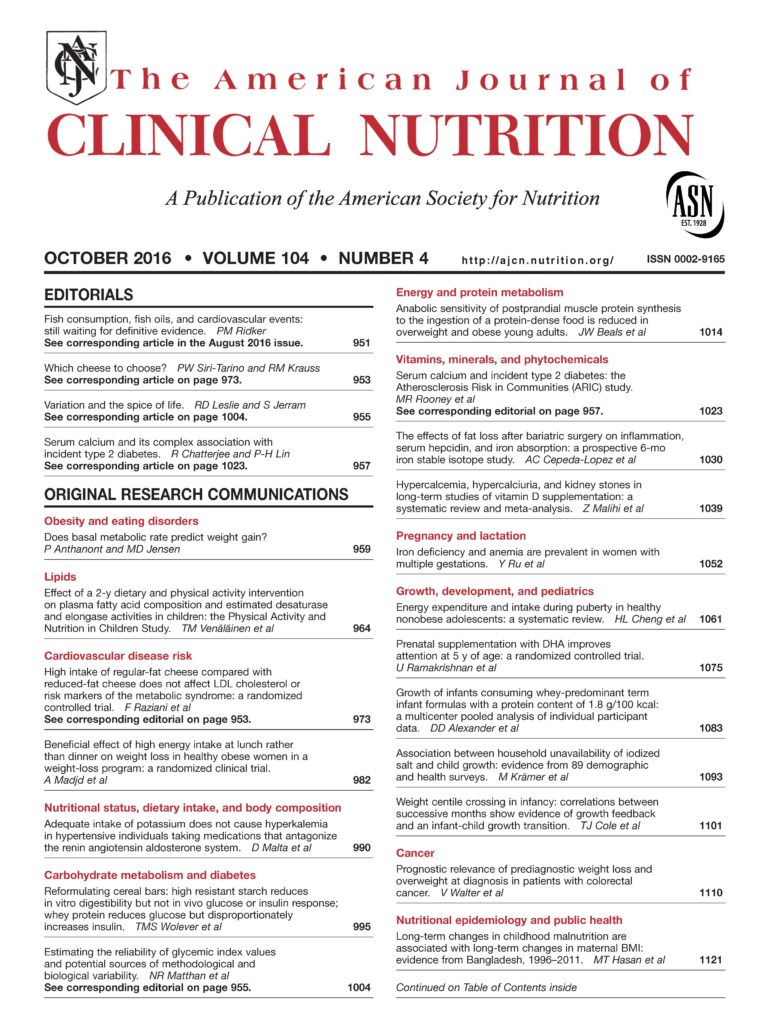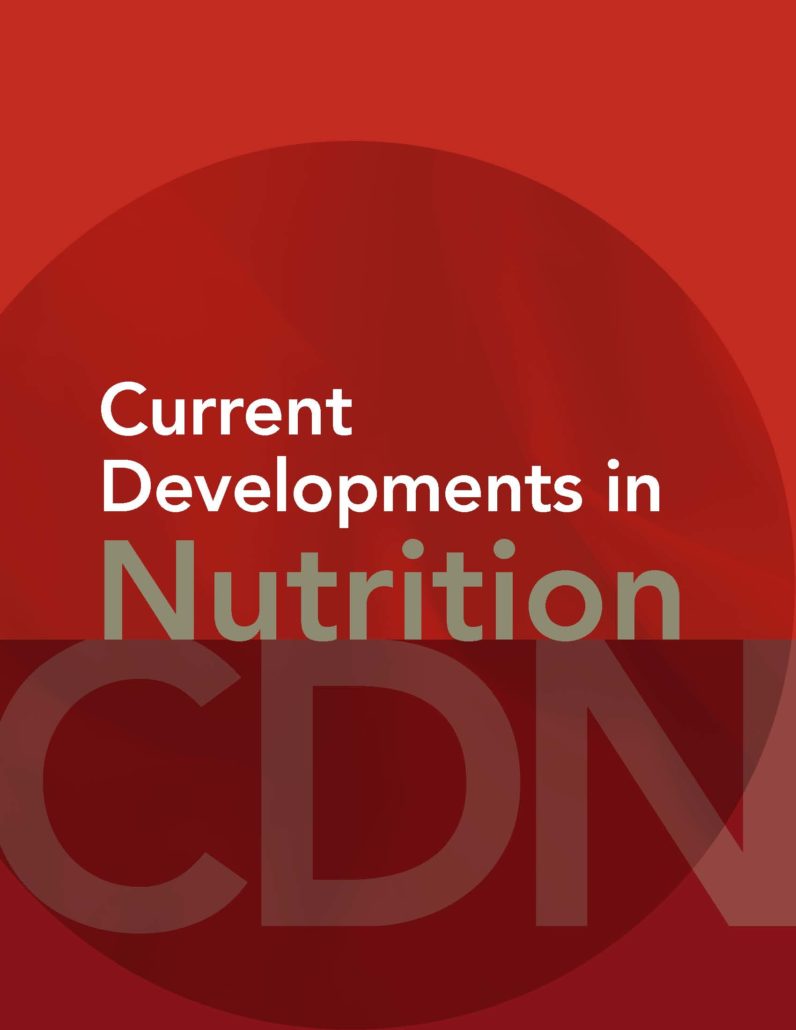What nutrition research is trending in the news this week? Here’s a look at popular research from ASN journals.
Changes in Kidney Function Do Not Differ between Healthy Adults Consuming Higher- Compared with Lower- or Normal-Protein Diets: A Systematic Review and Meta-Analysis

The Journal of Nutrition, Volume 148, Issue 11, November 2018, Pages 1760–1775, https://doi.org/10.1093/jn/nxy197
Background: Higher-protein (HP) diets are advocated for several reasons, including mitigation of sarcopenia, but their effects on kidney function are unclear.
Objective: This meta-analysis was conducted to determine the effect of HP intakes on kidney function in healthy adults.
Popular Tweet:
Protein guidelines for strength & power athletes. General population would benefit from some of these recommendations, too.
👉https://t.co/ryzcb1Lhcn
🔎https://t.co/XAv8mKcMEd
🔎https://t.co/jRWPAuOsxH
🔎https://t.co/jZl9KaXVnG pic.twitter.com/0KppafbERc— Adam Virgile (@AdamVirgile) June 18, 2019
Join ASN!
And get access to immersive learning experiences, collaboration, and networking with the greatest minds in nutrition.
Effects of red meat, white meat, and nonmeat protein sources on atherogenic lipoprotein measures in the context of low compared with high saturated fat intake: a randomized controlled trial

The American Journal of Clinical Nutrition, nqz035, https://doi.org/10.1093/ajcn/nqz035
Objective: We tested whether levels of atherogenic lipids and lipoproteins differed significantly following consumption of diets with high red meat content compared with diets with similar amounts of protein derived from white meat or nonmeat sources, and whether these effects were modified by concomitant intake of high compared with low SFAs.
Background: Dietary recommendations to limit red meat are based on observational studies linking intake to cardiovascular disease (CVD) risk together with the potential of its saturated fatty acid (SFA) content to raise low-density lipoprotein (LDL) cholesterol. However, the relation of white meat to CVD risk, and the effects of dietary protein source on lipoprotein particle subfractions, have not been extensively evaluated.
Popular Tweet:
New study (RCT, not epidemiological): no big effects of red meat, white meat, non-meat protein, or saturated fat on cholesterol levels https://t.co/VR31Hoodjv
٩๏̯͡๏)۶
— Bill Lagakos 🚀 (@CaloriesProper) June 21, 2019
Dietary Protein and Changes in Biomarkers of Inflammation and Oxidative Stress in the Framingham Heart Study Offspring Cohort

Current Developments in Nutrition, Volume 3, Issue 5, May 2019, nzz019, https://doi.org/10.1093/cdn/nzz019
Background: Chronic inflammation is thought to be a major characteristic of aging, which may increase need for substrates, specifically protein, to support anti-inflammatory processes.
Objectives: The aim of this study was to assess associations between dietary protein and changes in biomarkers of inflammation and oxidative stress over the long term in a community-dwelling population.
Read the full open access article here.
In the News:
Higher protein intake may curb age-related inflammation. Medical Xpress, June 11, 2019.

Exceptional Science & Inspiring Speakers






